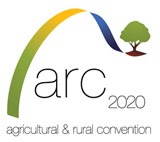
For months, we have been hearing about the bureaucratic burden that has been pushing EU farmers to the brink. Now, the preliminary results of a Commission survey designed to unpack this are in – so does this administrative load turn out to be heavy enough to justify the hasty re-opening of the EU’s farming subsidy programme? Natasha Foote digs in.
The simplification survey, self-described as a questionaire on “Simplification – the farmers point of view” ran for a month from 7 March to 8 April. It was announced as part of efforts to appease the EU farming community, who took to the streets to march against what protestors say is excessive regulation, unfair pricing and trade competition.
The aim was to “gather directly the views of EU farmers” and feed this into policy suggestions. “The survey will help to identify the sources of administrative burden and complexity stemming from CAP rules as well as other rules for food and agriculture, both in relation to their application at national level and also to the recording and reporting obligations linked to them,” the Commission survey page reads.
The insights gleaned from the survey will then enable the Commission to “develop targeted responses that reduce complexity and advance simplification,” according to EU Agriculture Commissioner Janusz Wojciechowski.
Read/download Commission presentation on 2024 CAP simplification survey
This is not the first time that the Commission has launched such an information gathering activity. It previously ran another CAP simplification survey, which ran between 2 February and 2 May 2017, for which it enlisted the help of external research-based consultancy Ecorys. (Read/download the 2017 survey on CAP simplification)
Survey design
The survey – which was open only to farmers and farm managers (more on than below) — ran for one month and was made up of 23 questions. Besides a number of questions related to the profile of respondents, the majority focused on administrative complexity and data collection, including controls, digital tools and geotagging. These included questions on:
- How much time is spent each year on administrative tasks linked to application of aid and reporting obligations?
- Do farmers use mobile devices to provide geo-tagged photos – and do they have any issues doing so?
- How do they rate the complexity of different procedures and rules applicable on farms?
- Did they use outside help to prepare CAP aid applications in 2023?
Read/download the questionnaire on simplification farmers survey 2024
There was also a specific question targeting the “difficulties” farmers face when applying requirements under the good agricultural and environmental conditions (GAECs) – mandatory environmental measures tied to CAP funding – or other environmental and sanitary requirements.

The phrasing of the questions has thrown up concerns among some, including Guy Pe’er, a scientist at the German Helmholtz centre for environmental research and iDiv, the German centre for integrative biodiversity research, who lambasted the “biased” questions and sub-questions targeting GAEC removal, as well as the survey’s “biased, pre-defined objectives” in a post on X. For Pe’er, the survey is “excellent material for social scientists [on] how not to design a survey”.
Speaking to ARC, Pe’er highlighted in particular a question related to “suggestions for simplifying the burden imposed by procedures and rules linked to financial support under the common agricultural policy (CAP), or other EU rules for food and agriculture”, noting that the use of the phrase “burden imposed” already predisposes the respondent to a negative framing.
“I have seen many surveys in the past and participated in designing many – this survey is not one that we can trust to deliver any insights on problems or solutions,” he told ARC.
Asked his view of the survey design, researcher Julian Rode, who focuses on environmental behaviour and policy at the German Helmholtz Centre for Environmental Research, told ARC he did not take issue with the questions asked so much as the “questions they don’t ask”, noting that the survey seems “under ambitious” and “narrow in scope”.
“It is a very risk averse type of questionnaire that cannot get too many answers that are too unpleasant to report afterwards,” he told ARC, pointing out that there are only a couple of questions where the farmers are able to “openly describe” the difficulties they have.
By comparison, the questions in the 2017 survey were broader in scope, covering questions on fair standards of living – the most frequently selected concern among farmers back in 2017 – and wider CAP design, as well as bureaucratic burden.
So while the actual survey design is “not directly flawed or biased”, the researcher warned that the overall approach to conduct such a specific survey and the interpretation of the results may well end up “biased and instrumentalised” in lobbying efforts to argue against environmental safeguards.
While young farmers’ association’s Marion Picot expressed some “regret” that the survey focused on only one or two aspects of the data, she maintained in an analysis on LinkedIn that the results are “full of useful lessons for the future”.
This gives an opportunity to “reflect on the many, often underestimated, implementation gaps that make our policy inefficient and, at times, frustrating,” she added.
Cart before the horse?
Moreover, ecologist Pe’er denounced the fact that – despite the stated aim of the survey being to feed into its policy proposals – the Commission announced its simplification plans well before the results of the survey themselves were announced. The Commission published its simplification plans on 15 March, while the survey was ongoing.
This included plans to downgrade mandatory environmental requirements to voluntary, and scrap on-farm checks (see below for more information on that).
Green Light Now, Green Fight Later – CAP Fast Track Risks Legal Wrangle
Meanwhile, plans to replace on-farm checks to some extent with digital tools such as geo-tagging – where you upload photos with spatial coordinates into an application – have already been since targeted. For instance, a number of member states expressed concerns over the “the burden on farmers of geo-tagging photos” ahead of a recent meeting of EU agriculture ministers.
This timeline raises concerns that the survey was designed to “merely retroactively justify the decisions taken by the Commission“, Pe’er warned. “If the survey was supposed to respond to farmers’ demonstrations, why not ask for the reasons behind them, the problems faced by different types of farmers, or explore alternative solutions? And, why not use the results of the 2017 survey, which encompassed a much broader range of respondents?” he queried.
So who gave their two cents?
The survey garnered 26,886 responses, 87% of which identified as farmers. The latest Eurostat figures indicate that there are around 10 million EU farmers. In comparison, the 2017 consultation saw 63,295 responses from a range of respondents, including responses from civil society and researchers.
Asked whether this reach is representative, Rode told ARC that these are “quite decent numbers” for an EU survey.
However, the scientist queried how the survey was communicated, noting that “how you spread the information” can “bias” the sample. The Commission states that the survey was advertised “through contacts with national authorities, farmers’ organisations, and via social media”.
For Rode, spreading the survey via farmers’ associations may, to some degree, shape the responses, while Pe’er added that this risks “cherry-picking” responses.
He also raised concerns that the survey was only open to farmers and farm managers, risking that inputs will be obtained only from certain groups with specific objectives. He noted that, in comparison, the 2017 consultation saw a significant response from civil society groups, researchers and citizens, the results of which were broken down by category.
However, Marion Picot, secretary general of EU young farmers’ association CEJA, the profile of respondents makes the survey an “unprecedented exercise”.
“While it may seem like evidence, most public consultations on CAP implementation conducted by the EU’s executive are open to all, which by definition does not constitute a problem at all but does mean that the views of farmers tend to be difficult to isolate,” she wrote in an analysis on LinkedIn. She also noted that young farmers made up over 28% of the responses.
So what did the survey actually find?
The first insights published focused on answers given by farmers to closed questions. Further, more in-depth analysis is due to be published at a later stage.
However, from the preliminary findings, the first outcome of note is that only a third of farmers spend more than 6 working days a year on administrative tasks linked directly with applications of CAP aid, while a quarter spend 5-6 days annually (see screenshot below).

The figures are challenging to contextualise. Firstly, they relate only to the administrative burden of the CAP application, on top of which farmers have the administrative burden of running their farms and businesses.
Meanwhile, the figures are not linked with the amount of aid farmers received for that time spent – 6 days would seem a lot for €200 received, for example, but more reasonable for €20,000.
While payments vary considerably across the EU and from one farm to another, according to Commission data, on average over the past 10 years, income support represented nearly half of farmers’ income.
On the checks and controls – another main point targeted in the Commission’s simplification plans – over two thirds of farmers reported that they had either been checked only once or never over 3 years (see figures below).
Meanwhile, two-thirds of those inspected spend up to one full day on managing the entire process, from preparation to follow-up.
The Commission offered exemptions for farmers below 10 hectares from checks and controls in its CAP simplification process. It also proposes the use of digital tools such as geo-tagging to help make the control process more efficient.
However, half of the respondents said they do not use mobile devices for their applications, while 26% report issues while using digital tools, reporting they are not user-friendly, too time-consuming, or inaccurate (see below)

As CEJA’s Picot put it, the survey indicates that digital tools, although “always at the top of the list in discussions around policy simplification, are not a silver bullet”.
Although the survey does not go into this level of detail, it also could be reasonable to assume an age divide between tech savvier young farmers and older farmers – meaning, ultimately, young farmers may shoulder more of the control burden as checks go more digital.
All in all, it is hard to conclude from these first insights that the CAP places an unreasonable administrative burden on farmers, or that geo-tagging and digital tools offer an adequate alternative for the moment. Meanwhile, the scope of the survey leaves many questions unanswered.
Next steps
The Commission will now publish further, more in-depth analysis of the replies to the survey, which will also be complemented by in-depth follow-up interviews with selected participants who have given their consent to be contacted.
The results will be integrated in the analysis to be published by Autumn 2024 on simplification from farmers’ viewpoints.
Meanwhile, another separate study will cover the New Delivery Model as a whole and presented to the European Parliament and Council due by the end of 2025.
More
Neoliberal Limits – Farmer Protests, Elections and the Far Right
Protests and Love – France’s Farmer Organisations, Demonstrations and Social Alliances
European Farmers are Angry: Addressing Root Causes Would Overcome Polarisation
Confidential Legal Advice on CAP Fast Track Uncovered – Critique of a Meek Opinion
Confidential Legal Advice on CAP Fast Track Uncovered – what’s in it?







